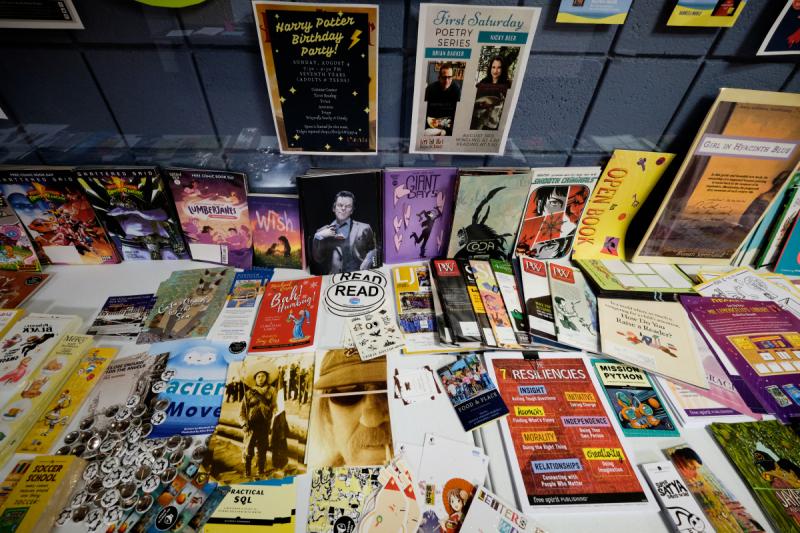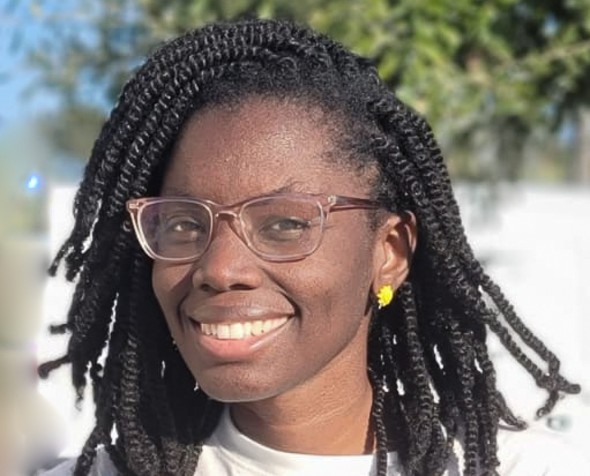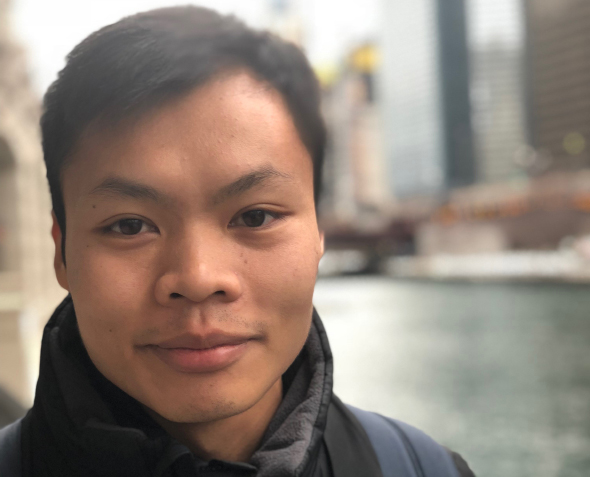Denver Publishing Institute Alumnus Launches Press for African Writers

Photo of books from the Denver Publishing Institute program in 2019.
Nigerian native Kenechi Uzor, who graduated from the Denver Publishing Institute (DPI) in 2021, named his small press after the Hausa word Iskanchi, meaning wayward, disobedient, irreverent and nonconforming. Iskanchi Press and its sister publication, “Iskanchi Magazine,” publish works by African writers, especially those that are innovative and experimental.
“We wanted to act on the need for more people of color in publishing, to represent ourselves, to tell our own stories as is and as we want,” says Uzor about launching Iskanchi Press and Magazine. “Starting out has so far been very fulfilling, and the interest and response affirms the necessity of our mandate. People want to read Africa.”
Uzor was already a well-seasoned publisher and writer in Nigeria when he came to the U.S., but he wanted to gain more understanding of the American publishing world. So Uzor applied to the Denver Publishing Institute’s program in the summer of 2021. He was awarded the DPI Community Scholarship, which, with the support of Park & Fine Literary and Media, provides scholarships to applicants who identify as BIPOC (Black, Indigenous and people of color). Park & Fine also provides mentorship support for recipients of the scholarship.
“I needed publishing professionals by whom I could run ideas, people who could offer guidance and answer some questions I had as a newbie publisher in the U.S. Park & Fine’s Andrea Mai, Anna Petrovich and Abigail Koons have been amazing in this regard,” says Uzor.
The Denver Publishing Institute also provided Uzor with important networking opportunities. Many of his colleagues keep in touch online, supporting each other’s work. Uzor also learned to value his own expertise and to keep working toward building more diversity in the U.S. publishing world.
“By attending DPI, I wanted to join the thousands of qualified people of color to say that ‘not enough qualified people of color’ is not the excuse for the appalling lack of diversity in U.S. publishing,” Uzor says.
As he gains more experience in publishing and with Iskanchi Press, Uzor acknowledges the limitations still apparent in Western publishing. He emphasizes the resistance to globalization and diversification, noting that many of the authors published by Iskanchi Press would struggle to be published elsewhere, especially as they defy genres and classifications that dominate Western publishing expectations. The traditions of African stories utilize different rules, and Uzor worries about how numerous stories by African writers are misunderstood by an American audience.
“The stories I want to write, the stories we have in Nigeria, for instance, cannot be taught in an MFA workshop in America. Some African stories belong to a different tradition, require different rules beyond the comprehension of the white guy in your MFA. Many books and stories by African writers have had their essence ripped out by the workshop or by Western editors,” Uzor says.
With Iskanchi Press and through his teaching at University of Utah, Uzor hopes to help that change.
“I’d like a publishing industry that reflects the multiplicity of ideas and identities of our current existence," Uzor says. "I’d like to walk into a bookstore in the U.S. and find African storybooks for my kid.”





